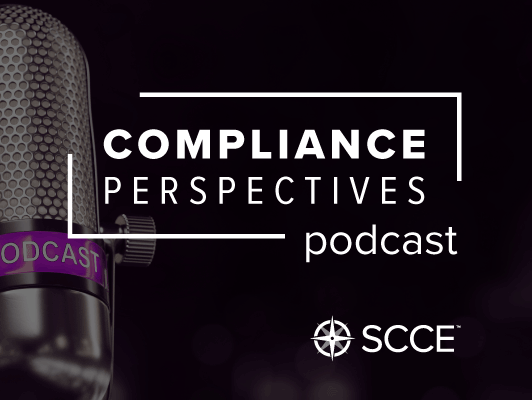Podcast: Play in new window | Download (Duration: 13:44 — 12.6MB)
Subscribe: Apple Podcasts | Email | TuneIn | RSS
There has been a lot of discussion over the last few years about nudges, although typically in the general business environment, rather than in the world of compliance and ethics.
A notable exception has been the work of Todd Haugh, Associate Professor of Business Law and Ethics at the Kelley School of Business at Indiana University, and a Board Member and Jesse Fine Fellow for the Poynter Center for the Study of Ethics and American Institutions. He has written about nudges and offers additional resources on behavioral compliance.
In this podcast, he explains that behavioral science has revealed that nudges – carefully crafted prods to make the right decision – can have a profound impact. A nudge takes advantage of choice architecture, which pushes people in a direction by structuring the environment in which choices are made.
Notably, this is not about tricking people. This is a pro-social effort.
So, how does it work in practice? It begins at the end. Look at the outcome desired and then examine the steps along the way. As you do, build a behavioral map that identifies when small interventions in existing processes can achieve positive compliance results. For example, one organization was receiving more anonymous reports on its help line than it desired. The organization realized that the default setting for reporters was set to anonymous. By simply shifting the default to including the person’s identifying information, non-anonymous calls increased 5%.
Another example comes in the area of travel. When an employee fills out a travel form for a high-risk country, it’s a good time to provide information on data security and the corruption risks of meeting with government officials.
Professor Haugh cautions that it is best to think of nudges as ways to have specific impacts on certain behaviors, not to do something broad like creating a positive corporate culture.
Have reasonable expectations and then test out various nudges to see which ones are having an impact and which ones aren’t.
Listen in. It may nudge you to think of your compliance efforts differently.


